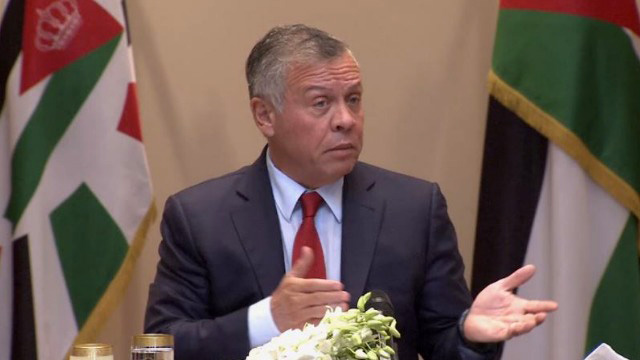Australia/Israel Review
Jordanian move signals Amman’s weakness
Nov 9, 2018 | Eyal Zisser

The late Israeli Prime Minister Yitzhak Rabin saw the 1994 peace treaty with Jordan as one of his most important diplomatic achievements, if not the most important one. Unlike the scepticism he expressed over the Oslo Accords and then-PLO Chairman Yasser Arafat’s commitment to them, Rabin was sure that Jordan’s King Hussein would live up to his word.
There is something symbolic in the fact that on the 23rd anniversary of Rabin’s assassination according to the Hebrew calendar, King Abdullah announced that he would not renew one of the annexes his father signed 24 years ago, leasing agricultural borderlands to Israel.
The Jordanian announcement is neither a big surprise nor a move that has far-reaching strategic significance. After all, these are Jordanian lands and it stands to reason that Jordan would have reimposed its sovereignty over them at some point, as no country in the Middle East would ever agree to relinquish territories over time.
Saudi Arabia did the same with respect to Tiran and Sanafir islands, which were administered by Egypt for years before Riyadh reimposed its sovereignty over them in 2017.
The problem, therefore, is not in the move per se, but in the manner and timing in which the Jordanians chose to declare they were essentially disavowing the spirit of the 1994 peace agreement and turning their backs on the partnership forged between Rabin and Hussein.
This was not a complete surprise. After all, the Jordanians are very hostile toward Israel compared to populations in other Arab countries and regrettably, the Jordanian regime does not even try to deal with this hostility. Facing a myriad of domestic challenges, the regime prefers to allow public opinion to lash out at Israel and hopes this will soften the criticism levelled at it on other issues.
At the same time, no Arab country is as dependent on Israel as Jordan, certainly in terms of energy and water resources and on questions of national security.
Moreover, no Arab state maintains such tight – albeit clandestine – strategic cooperation with Israel, as Jordan. Israel welcomes this cooperation and its importance is immeasurably greater than the acres of agricultural land over which Jordan now seeks to regain control.
Overall, this is not a move that truly harms Israel’s interest, which is why Jerusalem shows patience toward the hostile winds that are blowing in its direction from Jordan.
Nevertheless, the Jordanian move is as much a show of Abdullah’s weakness as signing the peace deal was a show of his father’s strength. Israel should maintain the same strategic cooperation with Jordan as it always has, but now, the eyes of its leaders have been opened.
Eyal Zisser is a lecturer in the Middle East History Department at Tel Aviv University. © Israel Hayom (www.israelhayom.com), reprinted by permission, all rights reserved






